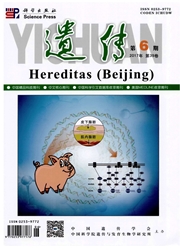

 中文摘要:
中文摘要:
饮食限制(Dietary restriction,DR)有效延长了哺乳动物的寿命,也使许多年龄依赖性疾病的发病率降低且延缓其进展。理解饮食限制引起长寿的遗传机制,会对将来处理衰老相关的医疗问题产生深远影响。然而直到最近人们对后生动物的这些机制几乎仍一无所知。通过理解能量感知和寿命控制遗传基础的最新进展,在酵母、无脊椎动物和哺乳动物中,已开始解决这个难题。越来越多的证据表明,后生动物大脑在感应饮食限制和促进寿命延长中起关键作用,因此文章综述了近来后生动物DR长寿的调解因子与DR长寿的基因和神经调节机制及有关理论的进展。
 英文摘要:
英文摘要:
Dietary restriction effectively extends lifespan in mammals and decreases the incidence and progression of many age-dependent diseases.To understand the genetic mechanisms that longevity responses to dietary restriction would have far-reaching impacts on future medical treatments to deal with the ageing problems.Until recently,we knew nothing about these mechanisms in metazoans.Recent advances of the genetic bases of energy sensing and life control in yeast,invertebrates,and mammals have begun to settle the problem.More evidence indicates that the brain has a principal role in sensing dietary restriction and extending lifespan in metazoans.This paper reviews recently development of mechanisms,regulatory factors,genes,nervous control,and related hypothesizes of DR-longevity mechanisms in metazoans.
 同期刊论文项目
同期刊论文项目
 同项目期刊论文
同项目期刊论文
 A functional p.82G > S polymorphism in the RAGE gene is associated with multiple sclerosis in the Ch
A functional p.82G > S polymorphism in the RAGE gene is associated with multiple sclerosis in the Ch Meta-analysis of the association of NOS3 Gene rs1799983 polymorphism with Alzheimer disease in 15 po
Meta-analysis of the association of NOS3 Gene rs1799983 polymorphism with Alzheimer disease in 15 po .Interactions between social/ behavioral factors and ADRB2 genotypes may be associated with health a
.Interactions between social/ behavioral factors and ADRB2 genotypes may be associated with health a Stimulation of Insulin Signaling and Inhibition of JNK-AP1 Activation Protect Cells from Amyloid-&be
Stimulation of Insulin Signaling and Inhibition of JNK-AP1 Activation Protect Cells from Amyloid-&be Gene polymorphism associated with cognitive decline in Chinese patients with late-onset Alzheimer&rs
Gene polymorphism associated with cognitive decline in Chinese patients with late-onset Alzheimer&rs 期刊信息
期刊信息
